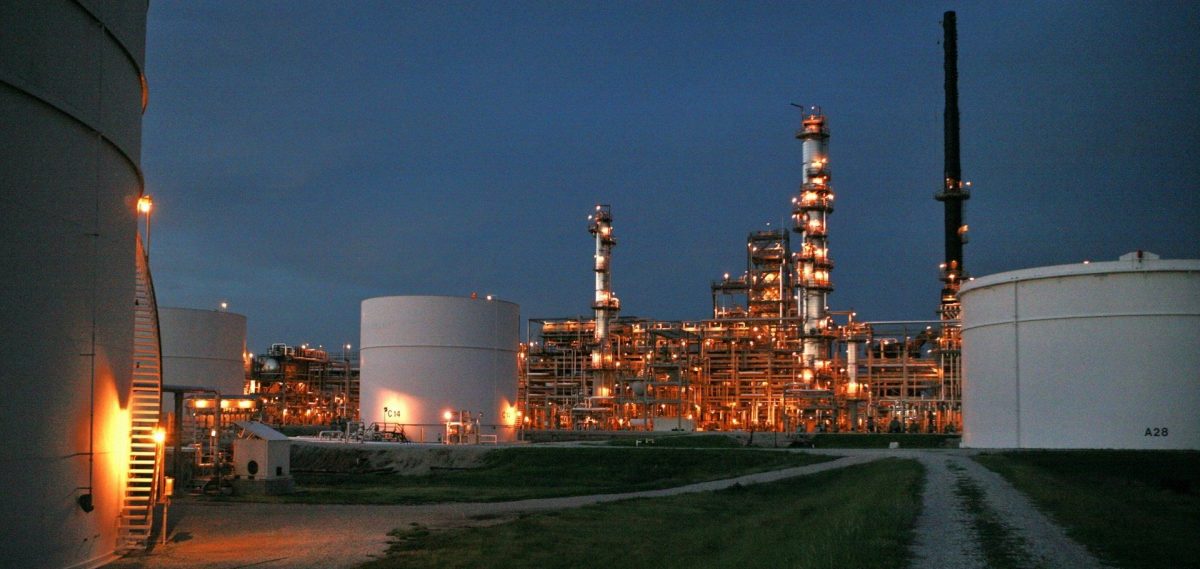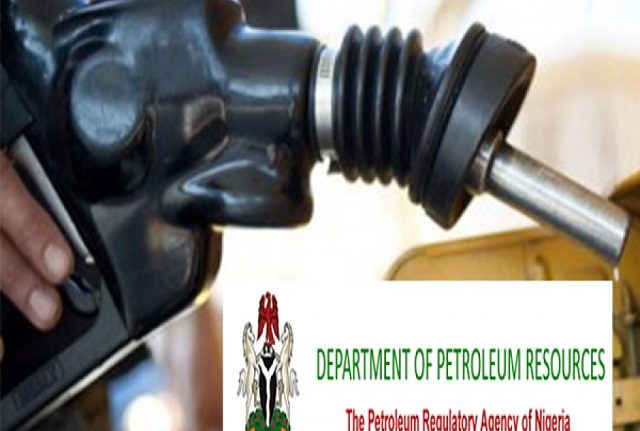With low oil prices in the international market, the Nigerian government has been quick to throw a token of fuel price reduction at Nigerians. But there is nothing salutary about the decision of the government to intervene yet again and determine the price of petroleum products. Nosa James-Igbinadolor reports
For a government making pretensions to running a free market economy, the terse announcement from the Minister of State for Petroleum Resources Timipre Sylva sounded incongruous and antithetical to the spirit of a market-determined economy.
The minister, on 18 March 2020, had verbosely announced, “The drop in crude oil prices has lowered the expected open price of imported petrol below the official pump price of N145 per litre.
“Therefore, Mr President has approved that Nigerians should benefit from the reduction in the price of PMS, which is a direct effect of the crash in global crude oil prices.
“In view of this situation, based on the price modulation template approved in 2015, the federal government is directing the Nigerian National Petroleum Corporation (NNPC) to reduce the ex-coastal and ex-depot prices of PMS to reflect current market realities.
“Also, the PPPRA shall subsequently issue a monthly guide to NNPC and marketers on the appropriate pricing regime. The agency is further directed to modulate pricing in accordance with prevailing market dynamics and respond appropriately to any further oil market development.
“It is believed that this measure will have a salutary effect on the economy, provide relief to Nigerians and will provide a framework for sustainable supply of PMS to our country.”
Sylva explained that the drop in crude oil prices had lowered the expected open market price of imported petrol below the official pump price of N145 per litre.More in Home
He added, “Therefore, Mr. President has approved that Nigerians should benefit from the reduction in the price of PMS which is a direct effect of the crash in global crude oil prices. In view of this situation, based on the price modulation template approved in 2015, the federal government is directing the NNPC to reduce the ex-coastal and ex-depot prices of PMS to reflect current market realities. Also, the PPPRA shall subsequently issue a monthly guide to NNPC and marketers on the appropriate pricing regime. The agency is further directed to modulate pricing in accordance with prevailing market dynamics and respond appropriately to any further oil market development.”
There is absolutely nothing salutary about the decision of the government to intervene yet again and determine the price of petroleum products. At a banal level, it depicts a caring government attuned to the socio-economic challenges of its citizens, but on a more perceptive plane, it really shows a conflicted government indecisive in taking fundamental macroeconomic decisions and keen on allowing a failed economic policy to keep holding the nation to ransom.
Official figures from the Petroleum Product Pricing Regulatory Agency (PPRA) show that money spent by the federal government in subsidizing petrol is anticipated to gulp a whopping N750.81 billion in 2020. The responsibility of paying for petrol subsidy has been borne for two years on behalf of the federal government by the Nigerian National Petroleum Corporation (NNPC).
This in itself is a major problem as the NNPC has a huge credibility deficit. The 2019 IMF report said of Nigeria’s oil behemoth, “NNPC is self-reporting and its figures cannot be verified or challenged by other government bodies, complicating the validation of information. There are concerns about the accuracy of revenue statements and room for enhancing the level of disclosure, including on what NNPC ultimately considers as net revenue. As highlighted by NEITI, there is significant scope to improve the regularity of NNPC disclosures.”
Petrol subsidy means the government pays petrol marketers for the difference between the regulated price of imported petrol and the Expected Open Market Price (EOMP), estimated by the PPPRA as an import subsidy. This programme is handled through the Petroleum Subsidy Fund (PSF).
As noted recently by BudgIT, with no strategic framework for the removal of the country’s petrol subsidy programme and a population expected to balloon to 398 million people by 2050, Nigeria risks carrying the financial burden of a subsidy programme that could drown out the development of its other sectors over the next 15 years. The organisation goes on to note that “fuel subsidy” deprives the nation of funds needed for critical socio-economic development. For example, the 10 trillion N consumed by the subsidy regime is sufficient to provide 27,000 megawatts (MW) of solar-powered electricity for stable power supply.
As the World Bank posited in its 2015 Nigeria Economy Report No. 3, fuel subsidy has the capacity of incapacitating the country’s ability to save for the rainy day.
The report had warned: “The $35 billion cost of the fuel subsidy during 2010–2014 was a primary reason why Nigeria was unable to accumulate a fiscal reserve in the excess crude account that could have protected the country from the recent oil price shock. Fuel subsidy obligations are expected to reach 18 percent of all government oil revenues in 2015, and, if the current regulated prices are maintained, this is projected to increase to more than 30 percent by 2018.”
The report further went on to note that “in recent years, numerous audits and reports have identified widespread corruption and fraud in the administration of the fuel subsidy, and official petrol imports have substantially exceeded actual consumption. Attempts by the government to crack down on fraud and delay payment of the subsidy have commonly met with severe fuel shortages in the country that also impose high economic and welfare costs on Nigerians”.
For decades, successive Nigerian governments have battled with the demon of petrol price subsidy, yet failed woefully to exorcise the country of the deadly evil. Even though the country is a major oil producer, it imports 91 percent of its daily petrol needs, leaving local prices exposed to shocks from exchange rate fluctuations. Under the Buhari administration, the local currency has consistently and persistently lost its value from N174 to a dollar in the middle of 2015 to N400 in the black market today.
Fiscal policy has remained expansionary and continues to be shaped by developments in the oil sector, rendering the fiscal situation fragile.
Nigeria has long subsidized fuel for its citizens. The cost of the subsidy is high, and economists and the international financial institutions have argued for many years that it significantly distorts the economy. Since the establishment of civilian government in 1999, consecutive presidents have sought to reduce or eliminate the subsidy. But such efforts have been scaled back or abandoned because of deep popular opposition. On occasion, proposals for curtailing the subsidy has led to strikes and serious riots in urban areas, such as Lagos.
Fuel subsidy is very popular because it is the only means by which most Nigerians benefit from the country’s petroleum. It is this placebo effect in which Nigerians see fuel subsidy as their own form of resource transfer from a government that otherwise provides them little or nothing from the current political economy.
With an estimated 37.2 billion barrels of proven oil reserves, Nigeria is one of the world’s largest oil producers. However, the country’s mineral riches have not resulted in a significant improvement in the quality of life for the majority of Nigeria’s citizens, 52 percent of whom live below the national poverty line. In 2019, Nigeria earned about $50 billion from oil and gas sales, thus, the country does not lack the resources to reach its development goals, rather its resources have been utilized inefficiently.
It is this inefficiency characterized by the behemoth called corruption that has kept petrol subsidy standing strong, unable to be dislodged by forces of reforms and rationality.
Kiran Pandey of the Centre for Science and Environment in India in 2019 said, “Nigeria has spent on average N833 billion (about $2.3 billion) a year to subsidize petroleum imports in the past 12 years. The real amount has skyrocketed nearly 5,000 percent and is projected to be at N1.15 trillion.”
Yet, it is not low-income Nigerians who benefit. Expenditure data as reported by the World Bank showed that the distribution of these subsidies is disproportionately concentrated in the hands of the rich. Richer, households spend a larger amount on fuel products, and, consequently, benefit more than poorer households from any universal subsidy on these products. On average the richest 20 percent receive over six times more in subsidy benefits than the poorest 20 percent.
Fuel subsidy largely favours people in higher-income groups as they own cars, run generators more, use more fuel, live in bigger houses and consume more energy. In contrast, the poor often residing in the rural parts of Nigeria, tend to use more charcoal, kerosene, firewood, use less transportation, live in their own small homes, source food from their immediate local and farms. Varied reports by the National Bureau of Statistics on household expenditure supports this view.
Nigeria’s fuel subsidy continues to crowd out other development spending. As reported by Bloomberg, Nigeria spends four times more money subsiding fuel than building new schools, health centre and equipping new science labs. Nigeria’s total allocation for education is about $1.974 billion and it is not much higher for health care. Infant mortality in Nigeria remains unacceptably high at 90.4 per 1,000 live births.
In 2016, it was estimated that only 15 percent of the country’s roads were paved. The $8 billion from the fuel subsidy could help to address some of these issues. This is a no-brainer and certainly neither justifiable nor sustainable.
No doubt, the fall in oil prices occasioned by the coronavirus pandemic and the Russia-Saudi ‘oil war’ provides the government with a veritable platform to destroy the subsidy demon once and for all. The problem, however, is that the government and its agents will likely not take advantage of it to do right to the Nigerian economy and people. The reason is simple; over the years, monies paid as subsidies have become sources of immense wealth to a few who lurk within the corridors of power. Successive Nigerian governments have neither displayed the commitment nor the urgency to effectively end the scourge of fuel subsidy.
The Nigeria Economic Society (NES) Policy brief aptly noted, “Economically-efficient and environmentally-responsive fuel pricing policy has been confronted by two key challenges. In many of the oil-exporting countries, few policy issues pitch good economics against good politics as fuel subsidy.
“First, the entitlement syndrome linked to citizens’ expectation of a share of the oil cake in an economy richly endowed with oil resources and secondly, the political difficulty associated with reconciling the heterogeneity of interests of key stakeholders in the sub-sector. The difficulty facing the elimination of the subsidy trap derives from a coalition of interests that are against efficiency-oriented reform of the sub-sector. They include the powerful petroleum industry labour unions and those who benefit from fuel subsidy payments.”
source: https://www.thisdaylive.com/index.php/category/editorial/

